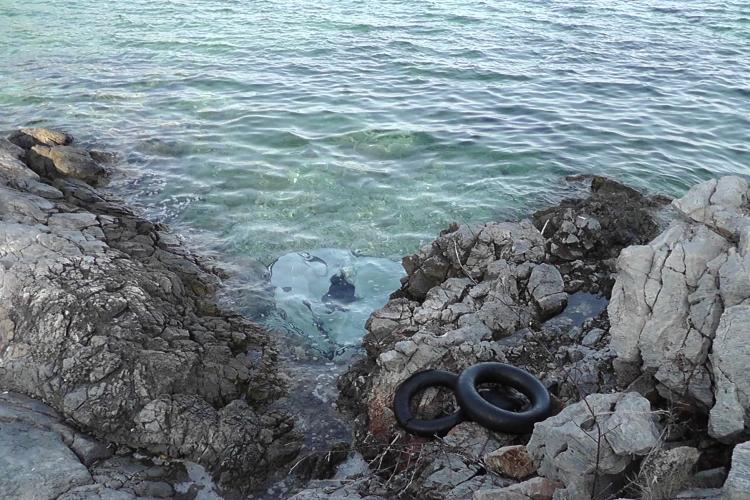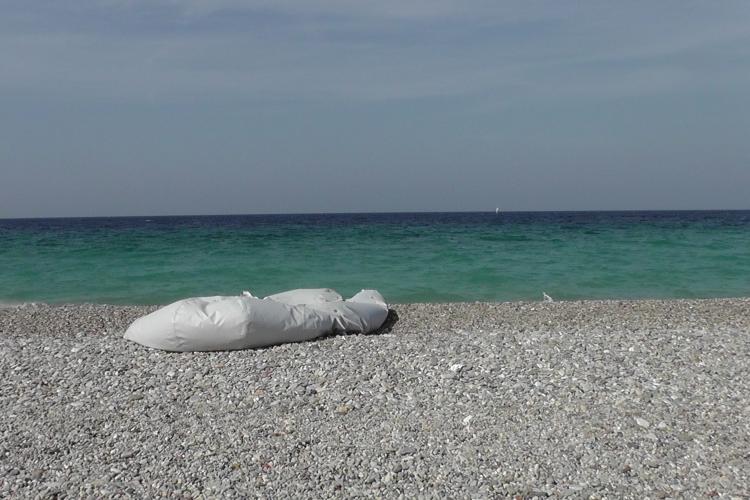Under-Researched, Transnational, Silent: Disappearances in Transit to Europe
Posted:
Time to read:
Guest post by Estela Schindel. Estela is a lecturer and researcher and the academic coordinator of the Viadrina Institute for European Studies of the European University Viadrina in Frankfurt (Oder), Germany. She studied Cultural Studies and Communications at the University of Buenos Aires and obtained her PhD in Sociology from the Free University Berlin. Her research interests include spatial and urban studies, theories and representations of violence, (im)mobility and border regimes, and biopolitics. Her current research engages with the entanglements of violence, nature, and technology in the EU border regime. For this project she has conducted fieldwork in the Greek-Turkish maritime border, in the Melilla/Morocco border area, and at meetings and fairs of the industry of border surveillance technology. Her work has been published in numerous collected volumes and journals, including International Journal for Transitional Justice, Rethinking History, European Review, Journal for Collective Identity Research, Journal for Borderland Studies, Mobile Culture Studies Journal and Environment and Planning C: Politics and Space. This is the ninth post of Border Criminologies themed series on 'Deaths at Borders' organised by Marta Esperti and Antoine Pécoud. The series draws upon a special issue of American Behavioral Scientist, coordinated by Marta and Antoine.
The high number of persons lost, missing, or dead in transit to Europe for migration and asylum purposes poses not only a political and ethical imperative, but also a challenge to the conceptual and technical instruments available for accounting for their lives. While the exact number of deaths is by itself difficult to establish, there is an additional difficulty linked to the fact that in many cases persons may not be confirmed as dead but may have disappeared. The difference between these two conditions has been long overlooked but is crucial for better understanding the lethal consequences of restrictive border policies and for advancing alternatives for intervention on the field.
The category of the disappeared crystalized especially in Latin America after the 1970s to refer to a specific form of state violence - forced disappearance - where persons are illegally kidnapped and information about their whereabouts is denied. Targeted especially at political activists, this form of disappearance may seem very distant from the cases of disappearances that take place in the context of migration. However, the conceptual, political and juridical advances developed by resisting and combating the effects of forced disappearance can provide useful instruments to cope with the challenges of border-related life loss and open channels for making states accountable.

A crucial legacy left by the experiences of forced disappearances worldwide is the importance of conceptually distinguishing between disappearances and deaths, since disappearing – or being “a disappeared” – is considered to produce a radically new ontological status. Disappearances destabilize basic assumptions of life in community, which prescribe due respect and honor to the dead. While death can be inscribed in collective rituals that confer a meaning to the loss for community and family, disappearances open a space of permanent unresolved anguish. The disappeared are neither present nor absent, neither dead nor alive, suspended in an indeterminate state between life and death. The uncertainty about their whereabouts challenges the processes of mourning and working through and has deeply disturbing effects not only for friends and family but for the society as a whole.
Furthermore, this differentiation opens up ways of making states accountable. The Latin American Mothers of the Disappeared realized early on the political potential contained in the term disappeared: if we assume the death of our children – they argued – then we are absolving the state from the responsibility of accounting for their lives. Sticking to the category of disappeared, for them, became thus an act of resistance and a tool for sustaining the claim before the state. But how to make states accountable for disappearances that take place in trans-nationalized contexts, in movement across borders, and in scenarios where state agency may not be direct or apparent but indirect, hidden or outsourced?
The UN Convention on Enforced Disappearance defines this crime as “the arrest, detention, abduction or any other form of deprivation of liberty that is perpetrated by agents of the State or by persons or groups of persons acting with the authorization, support or acquiescence of the State, followed by a refusal to acknowledge the deprivation of liberty” thus placing such a person “outside the protection of the law.” At first sight, this definition may seem of little relevance for tackling cases of persons disappeared while in transit for purposes of migration or asylum. However, the reference to the subtraction of the person from the protection of the law opens a path towards making states accountable since it invokes the obligation of the states to protect peoples’ lives. Even if the States are not considered to be directly or indirectly involved in the perpetration of the disappearance itself, they still bear the obligation to become active and find out the whereabouts of the disappeared.
These and further possibilities of making States accountable are being explored by the UN Working Group on Enforced and Involuntary Disappearances (WGEID), an organ created in 1980 in order to assist families in determining the whereabouts of disappeared relatives. Since 2015, the WGEID has been interested in the diverse forms of disappearance that take place in the context of migration in order to determine the causes and specify the obligations of the States. Among their concerns are cases of enforced disappearances that take place during migration as well as similar practices undertaken by private actors (like human trafficking) which may occur with the direct or indirect involvement of State authorities. In other cases, however, the WGEID considers that migrants may disappear “as an involuntary but direct consequence of the actions of the State”, for instance in the case of pushbacks, at land or at sea. While these may not, strictly speaking, be enforced disappearances, the experts’ group claims that they may nevertheless involve State responsibility in terms of the Declaration on the Protection of All Persons from Enforced Disappearance. Other situations under scrutiny include the failure to implement proper detention procedures, as well as the release of detained migrants, which according to international agreements must take place in conditions in which their physical integrity and ability to fully exercise their rights are assured –a guarantee that is not fulfilled when they are abandoned either at the desert or high seas.

Altogether, the WGEID observes ways in which migration and border control can lead to the disappearance of migrants, by making them more vulnerable, which may thus trigger State responsibility. Their reports consider that migrants may disappear due to their increasingly precarious and perilous journeys, often associated with the rigid migratory policies focused on deterrence, which have created a situation which exposes migrants to situations that heighten their vulnerability.
The attribution of deaths and disappearances to the hardships of the environment during migrants’ transit across borders is instrumental to a displacement or effacement of agency, as if the exposure to such forces would be beyond the reach of the obligation of protection by the State. In such allegedly neutral or extra-political contexts, the category of disappearance may become instrumental for tracing back accountability.
Note: Images by Estela Schindel, Samos, Greece, 2015
Any comments about this post? Get in touch with us! Send us an email, or post a comment here or on Facebook. You can also tweet us.
__________
How to cite this blog post (Harvard style)
Schindel, E. (2020). Under-Researched, Transnational, Silent: Disappearances in Transit to Europe. Available at: https://www.law.ox.ac.uk/research-subject-groups/centre-criminology/centreborder-criminologies/blog/2020/10/under-researched [date]
Share:








